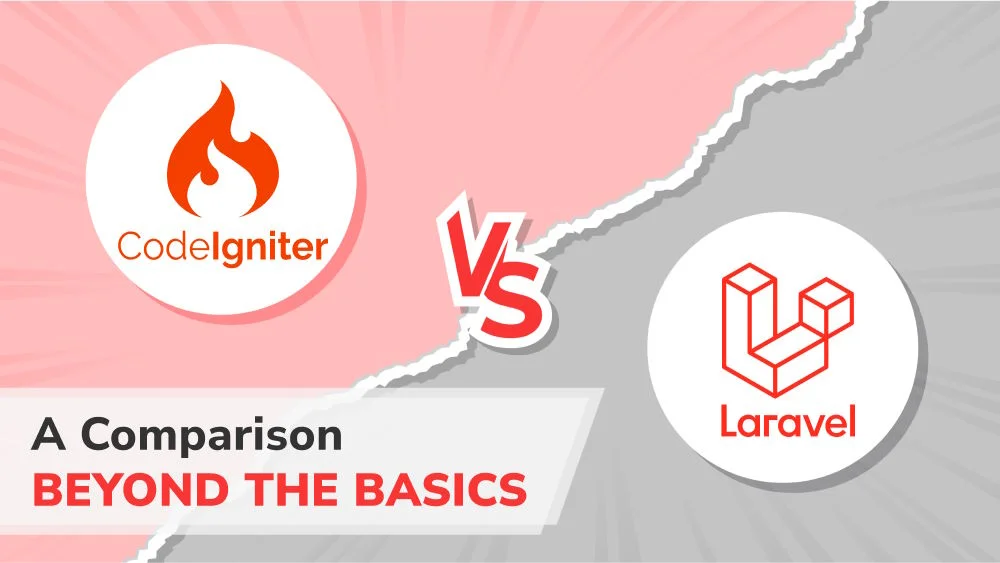Weighing the Advantages and Disadvantages of PHP from A Developer's Perspective
Are you still unsure if PHP is the right fit for your needs? So, read the article below to receive practical insights and confidently evaluate PHP in your own development contexts.

Content Map
More chaptersPHP, short for Hypertext Preprocessor, is a server-side scripting language that is frequently used in the creation of websites and web applications. It was developed in 1995 by Rasmus Lerdorf and has since evolved into one of the most well-known programming languages for building dynamic web applications. According to W3Techs, as of March 2023, PHP is used by 76.8% of all websites with a known server-side programming language. PHP framework has been around for almost three decades, and it has been the backbone of many popular websites, such as Wikipedia, Facebook, and WordPress.
Despite its popularity, the PHP language has both benefits and challenges, and it’s essential to consider them when deciding whether to use PHP for your web development project. To separate fact from fiction, we’ll take an unbiased look at PHP’s true strengths and weaknesses based on real-world PHP developer experiences.
By understanding the advantages and disadvantages of PHP, readers are better equipped to make an informed choice on whether it remains suitable for their project needs or if an alternative language may be a better technical fit. The goal is to provide developers with practical insights to confidently evaluate PHP in their own development contexts.
Advantages of PHP for Developers

The popularity and widespread use of PHP make it a go-to programming language for many web developers. Its popularity is not without reason:
- Ease of Use: PHP has a low learning curve, making it easy for developers of all skill levels to catch up. PHP code syntax is similar to C and other scripting languages, making it easy to grasp for those familiar with them. The simplicity of PHP allows developers to write clean and concise code, promoting faster development and easier maintenance.
- Large and Active Community Support: PHP boasts a vast and active community of developers who contribute to its rapid development and continuous improvement. This active community means there is extensive documentation, tutorials, and forums available, making it easier for developers to find support, share knowledge, and collaborate on projects.
- Platform Independence: PHP is a platform-independent language, meaning it can run on many different operating systems like Windows, Linux, macOS, and UNIX. This flexibility allows developers to deploy PHP applications on different platforms without major modifications, reducing development time and costs.
- Extensive Frameworks and Libraries: PHP boasts a rich ecosystem of libraries and frameworks, such as Laravel, Symfony, and CodeIgniter, that simplify web application development. These frameworks provide pre-built modules, libraries, and tools, accelerating development and promoting code reusability.
- Integration Capabilities: PHP seamlessly integrates with various web servers, databases, and protocols, making it a versatile language for web development. It supports integration with popular databases like MySQL, PostgreSQL, and Oracle, as well as web servers like Apache and Nginx. PHP also has built-in support for protocols like HTTP, LDAP, XML, and more.
- Enhance Website Loading Speed: PHP provides improved loading speeds for websites due to its optimized and efficient code as an object-oriented programming language. This faster loading translates to a better user experience by keeping visitors engaged on the site and reducing bounce rates. Additionally, faster speeds can boost search engine rankings, which helps attract more organic traffic. In comparison to other programming languages, PHP demonstrates a significant speed advantage - it can load pages up to 195% faster than Ruby and 382% faster than Python.
- Cost-Effective Solution: PHP is an open-source language, meaning it is free to use and has no licensing costs. This affordability makes it a wise choice for startups, small businesses, and projects with budget constraints. Additionally, the availability of numerous free and open-source PHP frameworks, libraries, and tools further reduces development costs.
- Wide Adoption and Job Opportunities: PHP has been widely adopted by the web development community, leading a vast number of PHP-based websites and applications. This widespread adoption creates a high demand for PHP developers, providing ample job opportunities and career growth prospects.
In general, PHP offers numerous advantages that make it a favored choice among developers. Embracing PHP empowers developers to create robust and dynamic web applications efficiently and effectively.
Disadvantages of PHP for Developers

While the PHP programming language offers several advantages for developers, it is also essential to consider the potential drawbacks associated with the language. Here are some key disadvantages of PHP from a developer’s perspective:
- Inconsistent Design: PHP’s evolution over the years has led to inconsistencies in its design and syntax. This can make the language feel fragmented and less cohesive compared to other modern programming languages. It may require developers to spend additional time understanding and navigating these inconsistencies.
- Lack of Debugging and Testing Tools: PHP does not have a built-in debugger or a comprehensive testing framework, which makes it harder to find and fix bugs and errors in your code. You may need to use external tools and libraries, such as Xdebug, PHPUnit, and PHPStan, to improve your debugging and testing process.
- Weak Typing: PHP is a weakly typed language, meaning it does not enforce strict variable typing. While this flexibility can be convenient for quick prototyping and small projects, it can lead to potential issues and errors in larger codebases. Developers need to be cautious and pay extra attention to variable types to avoid unexpected behavior.
- Security Risks: PHP’s past is plagued with security vulnerabilities, raising concerns about its overall security. Due to its open-source nature and easily accessible ASCII text file, PHP applications are susceptible to attacks, such as SQL injection and cross-site scripting (XSS). Developers must be diligent in implementing security best practices and regularly updating their knowledge of PHP security measures.
- Limited Multithreading Support: PHP traditionally follows a single-threaded model, which means it may not be the best choice for highly concurrent, multithreaded applications. While there are solutions available to overcome this limitation, such as using external libraries or integrating with other technologies, it adds complexity to the development process.
- Dependency Management: Dependency management in PHP can be challenging, particularly when dealing with conflicting dependencies or outdated libraries. Managing dependencies manually or relying on third-party tools can be time-consuming and may require additional effort to ensure compatibility and stability.
- Learning Curve for Advanced Concepts: While PHP is known for its ease of use and beginner-friendly nature, mastering more advanced concepts and best practices can take time and dedication. Understanding concepts like object-oriented programming (OOP), design patterns, and advanced database interactions may require additional effort for developers new to these concepts.
- Perception and Stigma: PHP has faced criticism and a certain stigma in the developer community due to its history and past issues. Some developers may consider it less modern or less suitable for larger, enterprise-level projects. However, it’s important to note that PHP continues to evolve and improve, and many successful and widely-used applications are built with PHP.
So, like any programming language, it has its share of disadvantages for developers to consider. It’s crucial to weigh these drawbacks against the advantages and specific project requirements. With proper knowledge, good coding practices, and leveraging the PHP ecosystem effectively, developers can mitigate these limitations and build robust and secure applications with PHP.
Tips for Maximizing the Advantages and Mitigating the Disadvantages
To make the most of PHP’s advantages and overcome its potential drawbacks, developers can implement certain best practices and strategies.
Best Practices for Leveraging PHP’s Strengths in Development Projects
- Use PHP Frameworks: PHP frameworks are collections of libraries and tools that provide a structured and standardized way of developing web applications. They can help you take advantage of PHP’s flexibility and dynamism while also improving your code quality, security, performance, and scalability. Some of the most popular PHP frameworks are Laravel, Symfony, CodeIgniter, and CakePHP. You can choose the framework that best suits your project’s needs and preferences or even create your own custom framework.
- Use Composer and Packages: Composer is a dependency manager for PHP that enables you to install and update libraries and packages for your project easily. Packagist is the primary repository for Composer packages, where you can find and share thousands of open-source and ready-to-use components for PHP. Using Composer and Packagist can help you simplify and automate your project’s setup and maintenance, as well as reuse and integrate existing code from other developers.
- Use PHP Coding Standards and Tools: PHP coding standards are the collection of guidelines and rules that define how PHP code should be written and formatted. They can help you improve your code readability, consistency, and maintainability, as well as avoid common errors and bugs. Some of the most widely used PHP coding standards are PSR-1, PSR-2, PSR-4, and PSR-12. You can also use various tools and extensions, such as PHP_CodeSniffer, PHPStan, and PHPStorm, to check and enforce your code quality and compliance with the coding standards.
- Use PHP Testing and Debugging Tools: PHP testing and debugging tools are applications and libraries that help you find and fix errors and issues in your code. They can help you improve your code functionality, reliability, and security, as well as speed up your development process and reduce your costs. Some of the most useful PHP testing and debugging tools are PHPUnit, Xdebug, and Laravel Dusk. You can also use various tools and services, such as Rollbar, Sentry, and Bugsnag, to monitor and report your code errors and exceptions in production.
Strategies for Addressing and Minimizing the Drawbacks of PHP
- Use the Latest PHP Version: PHP is constantly evolving and improving, introducing new and innovative features and standards, as well as fixing bugs and vulnerabilities. Using the latest PHP version can help you benefit from the latest improvements and enhancements, as well as avoid outdated and deprecated functions and practices that can cause errors and security issues. You can check the current PHP version and its release history on the official PHP website.
- Use Proper Error Handling and Reporting: PHP has a weak and inconsistent error handling and reporting mechanism, which can make it difficult to detect and resolve the root causes of the problems. You can use various techniques and functions, such as try-catch blocks, set_error_handler, error_reporting, and ini_set, to handle and report PHP errors more effectively. You can also use various tools and extensions, such as Whoops, Monolog, and Laravel Telescope, to enhance and customize your error-handling and reporting experience.
- Use Security Measures and Techniques: PHP is prone to some common web security risks and vulnerabilities, such as SQL injection, cross-site scripting (XSS), and cross-site request forgery (CSRF), due to its dynamic and open nature. You can use various measures and techniques, such as data validation, sanitization and filtering, password hashing and salting, HTTPS and SSL encryption, and CSRF tokens, to protect your PHP code and web application from malicious attacks and hackers. You can also use various tools and libraries, such as PHP Security Checker, OWASP ZAP, and Laravel Sanctum, to enhance and automate your web security practices.
Final Suggestion
Are you still unsure if PHP is the right fit for your needs, or have lingering questions after reading this article? Orient Software has over a decade of experience developing solutions with PHP. We’d be happy to have an exploratory discussion to help address any other considerations or provide guidance based on the uniqueness of your project goals.
Our team of PHP experts can evaluate your requirements, recommend the best architecture and frameworks, estimate development timelines, and even handle custom programming work if needed. By partnering with Orient, you gain the confidence that comes from working with a team that truly understands PHP inside and out.
Get your questions answered and make informed decisions with confidence. Don’t continue to second guess PHP - contact Orient Software today. We provide complimentary consultations to discuss your needs, review sample codes, and advise on the most efficient approach for your business or organization. Our mission is your full satisfaction, so reach out now, and let’s start strategizing the right PHP solution for you.







